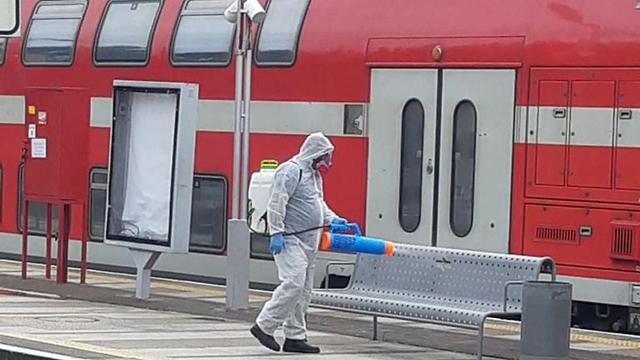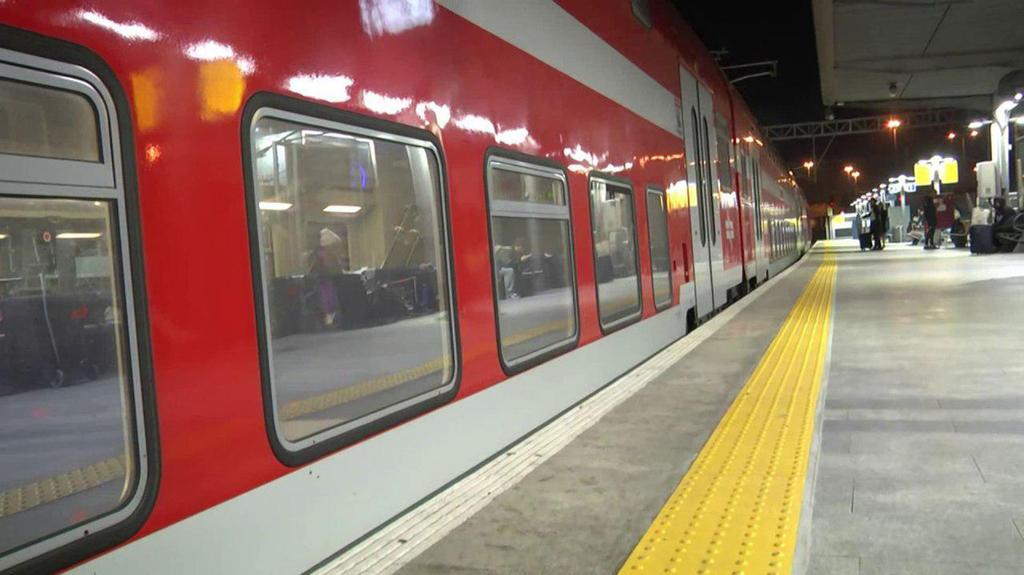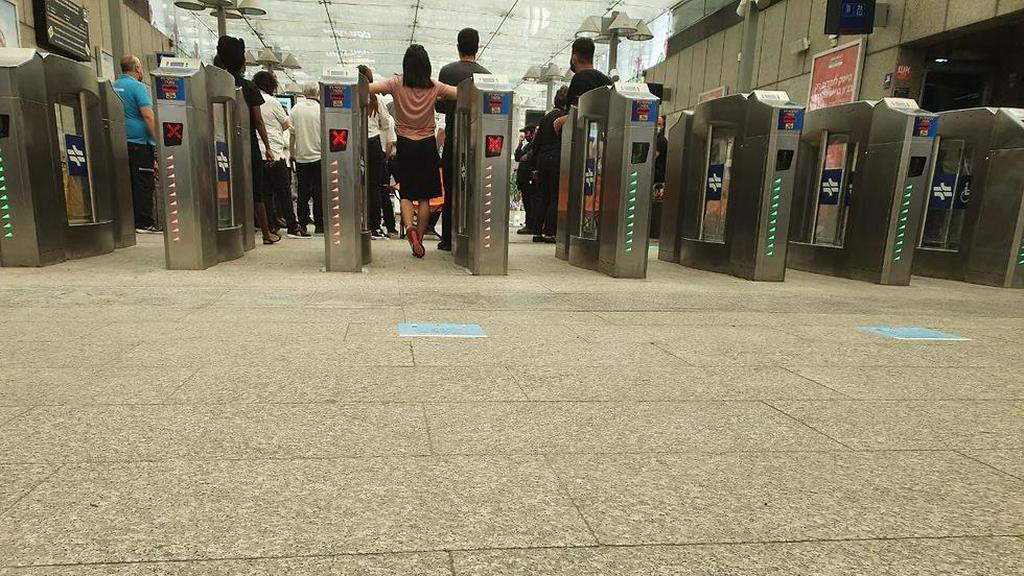Getting your Trinity Audio player ready...
The relaunch of Israel's trains, planned for next week, looks to be delayed yet again as health officials warn against reopening of railway traffic amid another spike in coronavirus cases in the country.
The Knesset Finance Committee on Tuesday held a lively discussion on whether to postpone the reopening of train traffic set to June 17 after concerns emerged it could increase the number of COVID-19 infections.
"We will discuss the issue on Thursday with the NSC [National Security Council], whether the train traffic will really reopen," said a Health Ministry official at the meeting. "We want to safeguard the public's health, should cases continue to rise – we'll lose more than we have gained."
As part of the public transportation system's exit strategy from the crisis, railway traffic was initially scheduled to return on May 17. The date was then pushed back to June 1, but Health Minister Yuli Edelstein and Transportation Minister Miri Regev then moved the relaunch to June 8. Now, it appears the alarming contagion rate may lead to another delay.
National Public Transportation Authority chief Amir Asraf said at the meeting he believes the traffic will resume next Monday as planned, without a limit on a number of passengers allowed.
The head of the Finance Committee, MK Ya'akov Margi, said unless the Transportation Ministry presents an outline of how it intends to keep passengers boarding the trains from contracting the virus, the railway will not reopen. "I seriously fear it will not reopen," he said.
Israelis who use railway services to get to work, were left furious by the announcement of another possible postponement. "Thousands of people who rely on public transport have been denied freedom of movement because of made-up excuses," said Danny, a resident of the norther city of Haifa.
"They've opened the beaches, restaurants and even event halls, while people pile on top of each other on buses. Then they talk about postponing the trains because of public health?"
An NSC official also raised the issue of epidemiological investigations of foreign workers infected with COVID-19, saying the bodies in charge of monitoring and treating any potential outbreaks among overseas laborers are severely understaffed.
"We do not have enough manpower to deal with the issue like with other populations," said the official. "We've only got one or two people in charge of it in Tel Aviv. This is a demographic that we must address at a national level regarding coronavirus, so we'll have the ability to test quickly and conduct epidemiological investigations and get patients out of the crowded area."




